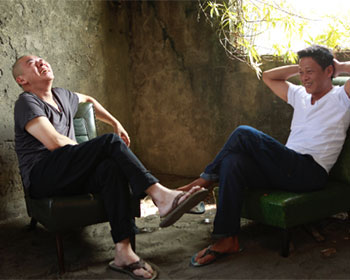Publication:
Frontiers of Literary Studies in China, Volume 11, Issue 2
Edited by Tse-Lan Deborah Sang and Chun Zhang
Ella Raidel, “The Exhausted Narrative in Tsai Ming-Liang’s Films”, pages 329-351
This articel sets out to examine the “exhausted narrative” in aesthetic and poetic experience, revealing the affect and effect of Tsai Ming-Liang’s film-making. He is notable for his obsession with ruins, defunct construction sites, abandoned buildings, and film itself as a modern ruin. These sites are a reminder of the alienated subjects within its historical context, a fragmented narrative, and an uncertain or failed future to come, just like the ruin-a chapter of a halted story. Tsai’s films are not only full of ruinous images and bodies, but even the fragmented narratives are ruinous, turning in elliptical circles, aiming toward their morbid ending until their total exhaustion. This cinematic ouroboros ophis will be discussed in two aspects: first, as an aesthetic practice, and second, as the parallelism between the onand off-screen reality of the mode of production and reception in the cinematic experience. The term “exhausted narratives” refers to the processes of writing meta-fiction, as that of “re-orchestrating” and “re-editing” the past with respect to the present, and to inscribing Tsai’s own narrative universe.
http://journal.hep.com.cn/flsc/EN/volumn/volumn_3084.shtml#1
http://booksandjournals.brillonline.com/content/journals/16737423/11/2

